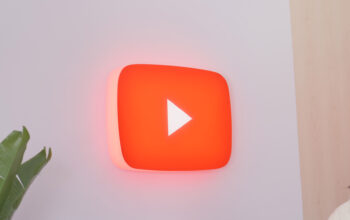Eric Zeman / Android Authority
In July, Google CEO Sundar Pichai told employees that “scarcity brings clarity.” He warned of economic headwinds and urged staff to work with “more hunger than [Google has] shown in sunnier days.”
Just two months later, scarcity is already manifesting itself in Mountain View. Google quietly canceled its next Pixelbook and dismantled the team behind it. The Pixelbook was reportedly “far along in development.” The company also gutted Area 120, its experimental product incubator.
Google’s execution of its hardware strategy is still turbulent at best.
Google has a long and complicated history with consumer hardware. In the 12 years since the Nexus One launched, the company put out dozens of products across multiple verticals. It bought and sold Motorola. It acquired iconic brands like Nest and Fitbit. It established a distinct hardware division that became a multibillion-dollar business. You’d think all this experience would allow the company to hone a long-term vision for what its hardware should be. Maybe that’s the case, but looking at it from the outside, Google’s execution of its strategy is still turbulent at best.
It’s gotten better, to be fair, especially when it comes to smartphones. After years of false starts and dead-ends, Google seems to have found a clear path for the Pixel line. There’s a competent high-end Pixel and a very competitive mid-range one, and you kind of know what to expect from the next generation. This “boring” release cycle may not be as fun to watch for a tech blogger, but it’s the best thing Google could do to grow its phone business.
There’s not much rhyme and reason in Google’s Chromebook release timeline.
The Chrome OS line, on the other hand, is less predictable. It started with the ridiculously high-end Chromebook Pixel (which Android Authority leaked back in 2013). Google followed up with a refined model in 2015, which it stopped selling in 2016. Then it switched branding for the 2017 Pixelbook, a hybrid laptop, and then the 2018 Pixel Slate, a Chrome OS-powered tablet. The Pixelbook Go landed in 2019 as a more affordable successor to the Pixelbook. Finally, the now-canceled next-gen Pixelbook was rumored to launch sometime in 2023, powered by Google’s own Tensor chip; its cancelation, therefore, has an impact beyond just the Chrome OS line.
There’s not much rhyme and reason in this timeline. But all of these devices had a few things in common — they were expensive, design-centric, and way more powerful than the average Chromebook. They were aspirational products, designed to showcase what Chromebooks could really be, if manufacturers would only look beyond their bottom line for a second.
In 2022, a new Pixelbook is redundant when you can get superb Chromebooks from several other brands.
In 2022, Google may no longer need to set a high bar for the Chrome OS ecosystem. As The Verge’s Monica Chin and About Chromebooks’ Kevin C. Tofel pointed out, it’s a different landscape out there compared to 2013. You can now get superb Chromebooks from several manufacturers, including HP, Lenovo, and Asus. That makes a new Pixelbook somewhat redundant.
And then there’s the tricky balancing act of competing against your own partners.
One could definitely argue that Google’s decision to drop the Pixelbook makes business sense. Developing hardware is expensive, the returns are questionable, and the greater economic context is gloomy.
What worries me is that Google still seems to treat Chromebooks (and much of its other hardware) as a side project, a nice-to-have-but-not-essential project for “sunny days,” as Pichai put it. A hobby you can drop when times get tough.
In 2019, I wrote that Google’s reputation for fickleness threatened to derail its initiatives. I used Stadia, the then-new game streaming platform, as an example, citing developers’ concerns that Google would simply abandon the project. Three years later, Stadia is not dead, but it’s not long for this world either. The anemic adoption, by game developers and players alike, can be blamed in no small part on Google’s clear lack of commitment to the platform. Indeed, Google seems to have pivoted already, now focusing on selling Stadia tech to other companies.
If Google is not really committed, why should anyone else be?
Google can definitely afford to be inconsistent. Hardware is a tiny slice of its business, and let’s face it, with all its fickleness, Google still gets the benefit of the doubt from media and consumers alike. But that will only get you so far against the likes of a very focused Apple or Samsung.
Related reading: Today’s Google is still paying for the mistakes of yesterday’s Google
And that’s the thing — Google wants to be seen as a serious hardware company, but it’s not willing to grind for it. Or at least that’s the impression I get from the outside. Time and again, it has taken the path of least resistance, which is fine in the short term, but it’s not how you run a sustainable hardware business.
Do you think Google has commitment issues when it comes to hardware?
21 votes
At the end of the day, it all boils down to perception. Google may not need a new Chromebook — or streaming service, smartwatch, tablet, etc. But cutting a product mid-development just signals to the world that you’re not really committed. So why should anyone else be?



